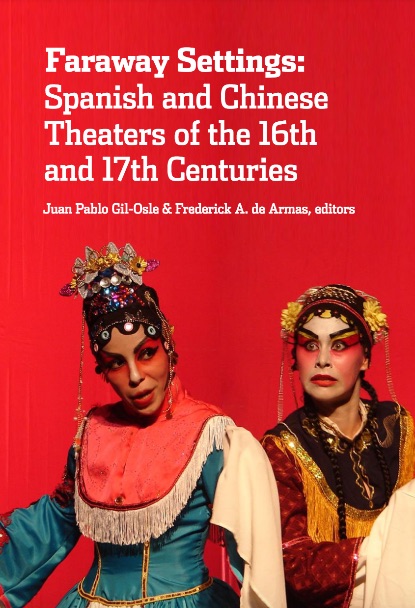A comparative study of Ming and Iberian theaters has never been attempted. Thus, this book aims to provide the reader with a series of different approaches. First, through a comparison of specific works by Spanish and Chinese playwrights during the Ming and Habsburg periods, we aim to show that at times certain commonalities are in reality spaces fraught with misunderstanding. A melancholic character in Spain would not be the same as a melancholic figure in Chinese theater. A particular plant or flower had completely different symbolic meanings. However, it is curious to note how certain character types in both theaters resemble each other; and how the interaction between actors and audience would show clear parallels. At the same time, this is a book that also finds the thrill of correspondences and affinities as they are recovered through modern staging, climate change, universality of emotions, representations of friendship, folk characters, metaphors and dreams.
- Cover
- Title page
- Copyright page
- Table of Contents
- Preface. Juan Pablo Gil-Osle, Frederick A. de Armas
- Theatrical origins
- Jongleuresque Origins. Bruce R. Burningham
- Spain Learning about Chinese Theater (Miguel de Luarca’s Verdadera relación de la grandeza del Reino de China). Jorge Abril Sánchez
- Oneiric excesses and theatricality
- Painting Emotions and Dreams (Tang Xianzu’s Peony Pavilion and Lope de Vega’s La quinta de Florencia). Frederick A. de Armas
- Global Climate and Emotions. Juan Pablo Gil-Osle
- Emotion, Object, and Space (Tang Xianzu’s Peony Pavilion and Pedro Calderón de la Barca’s La vida es sueño). Carmela V. Mattza Su
- Global stagings
- Picaresque Theater (Miguel de Cervantes’ Pedro de Urdemalas, directed by Alejandro González Puche and Ma Zhenghong). Alejandro González Puche
- Theatrical Characters (Pedro Calderón de la Barca’s El astrólogo fingido, directed by Alejandro González Puche and Ma Zhenghong). 马政红 Ma Zhenghong
- Audience Reception (Pedro Calderón de la Barca’s El astrólogo fingido, directed by Alejandro González Puche and Ma Zhenghong). María José Domínguez
- From Novel and Theater (Pedro Calderón de la Barca’s El astrólogo fingido, directed by Chen Kaixian). Matthew Ancell
- Sinosphere
- Christian sacred plays and No Style. Javier Rubiera
- Depicting Japan: Lope de Vega and los Primeros mártires del Japón. Claudia Mesa Higuera
- Contributors
- Index

